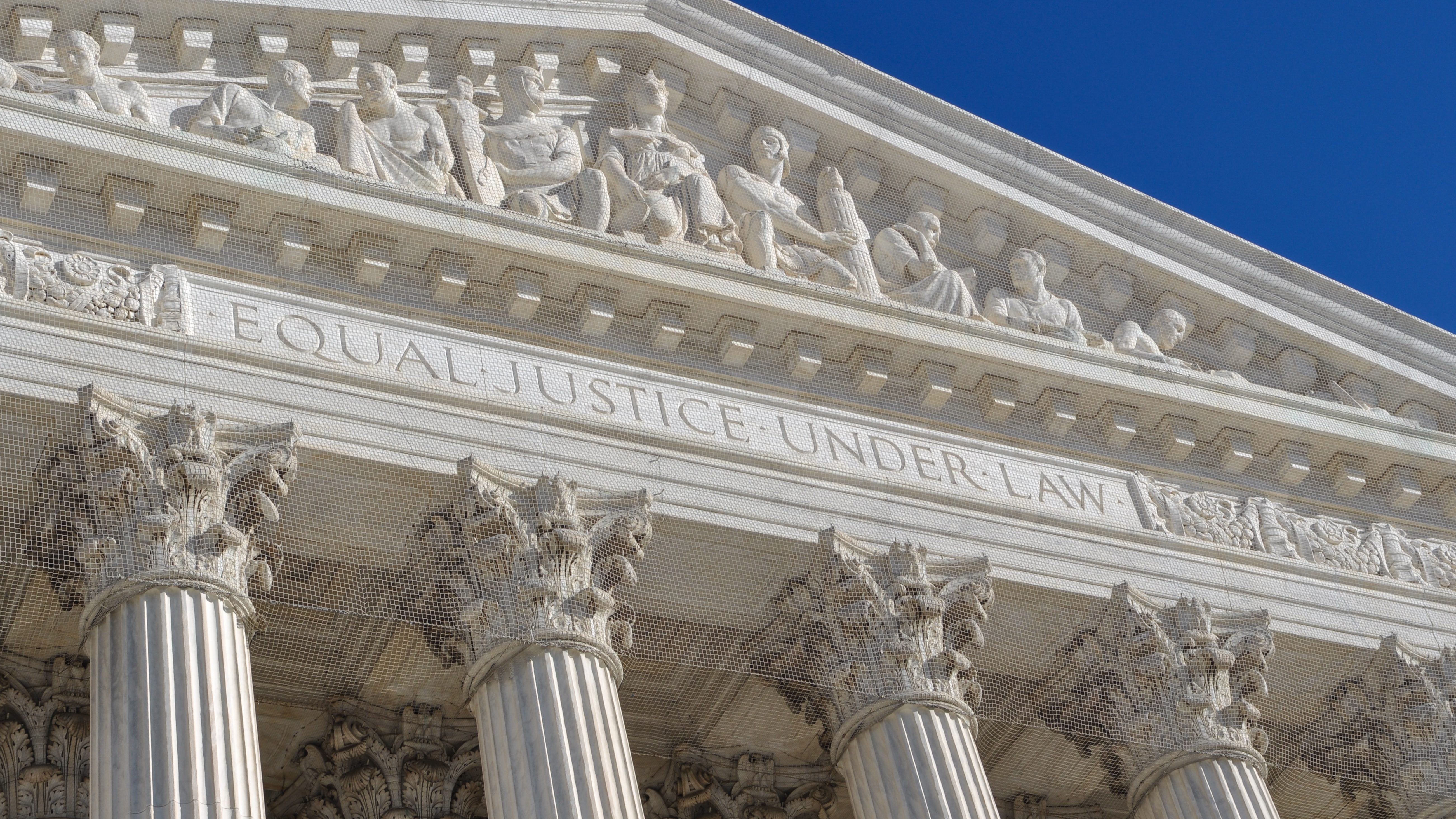Thursday, Alabama Attorney General Steve Marshall (R) and the Foundation for Moral Law both applauded a 7 to 2 U.S. Supreme Court ruling upholding the constitutionality of a 40-foot Cross near Bladensburg, Maryland.
The Bladensburg Peace Cross is a 40-foot cross honoring those who died during World War I,
The cross was erected after World War I to honor American soldiers who died in that conflict.
The American Humanist Association had challenged the Cross as an unconstitutional Christian symbol. The Fourth Circuit ruled that the Cross had to be removed.
Justice Alito’s plurality opinion, reversing the Fourth Circuit, stated that the “removal or radical alteration [of the Cross] at this date would be seen by many not as a neutral act but as the manifestation of a hostility toward religion that has no place in our Establishment Clause traditions.”
Alabama Attorney General Steve Marshall praised the Supreme Court decision upholding the constitutionality of the World War I memorial in the shape of a cross.
“I applaud the Supreme Court’s strong ruling in American Legion v. American Humanist Association that a cross in a public memorial setting is not a violation of the Constitution’s prohibition on the government establishing an official religion,” said Attorney General Marshall.
“Alabama joined an amicus brief in support of the continued display of the ‘Peace Cross’ memorial in Bladensburg, Maryland, because many hundreds of similar public monuments and memorials across our land stand as both pillars of respect to the fallen and important symbols of our country’s history and traditions,” Marshall wrote. “As Justice Thomas noted in his concurrence, the American Humanist Association failed to demonstrate ‘that maintaining a religious display on public property shares any of the historical characteristics of an establishment of religion. . . . Instead, the [state’s park and planning] commission has done something that the founding generation, as well as the generation that ratified the Fourteenth Amendment, would have found commonplace: displaying a religious symbol on government property.’”
Foundation President Kayla Moore noted that the Foundation had filed an amicus brief supporting the American Legion and the Cross.
“Crosses are found throughout military cemeteries, and brave soldiers are awarded the Distinguished Service Cross, the Navy Cross, and the Air Force Cross,” Kayla Moore said. “The cross not only represents Christ’s sacrifice for us but is an integral part of our American heritage.”
Foundation Senior Counsel John Eidsmoe authored the brief.
“We argued that the public display of the cross has deep roots in American history that precede. the Constitution,” Eidsmoe said. “Nothing in the language or history of the First Amendment indicates any intent to change that tradition. We also noted the identification of the cross with military sacrifice. Removing the cross, we argued, would communicate a message of exclusion to believers. Much of the language of the plurality and concurring opinions parallels the arguments in our amicus brief.”
Liberty Counsel said in a statement that while the U.S. Supreme Court ruled that the Bladensburg Peace Cross will remain standing; however, the High Court sidestepped the opportunity to overturn the so-called “Lemon Test,” sometimes used to determine if a law violates the First Amendment Establishment Clause.
Liberty Counsel also previously filed an amicus brief to the High Court in support of the war memorial.
While the High Court ruled in favor of the “Peace Cross,” Liberty Counsel said that it had sidestepped the opportunity to overrule the Lemon v. Kurtzman decision. The the Court ruled that a Rhode Island law that paid some of the salary of some parochial school teachers was unconstitutional.
Liberty Counsel said in their statement that this test has proven to be unworkable and has led to inconsistent and contradictory decisions on the constitutionality of 10 Commandment monuments and cross monuments like the “Peace Cross.”
Liberty Counsel previously argued that the “Lemon Test” should be replaced with an objective test that would yield clear and consistent results. The new test would analyze displays based upon history, whether the symbol is ubiquitous and whether the display is coercive, i.e., is actively trying to proselytize or push a particular religious belief.
“Today the Supreme Court made a common sense ruling that the ‘Peace Cross’ war memorial does not violate the First Amendment Establishment Clause,” said Mat Staver, Founder and Chairman of Liberty Counsel. “Today’s ruling is an encouraging example of the Court returning to the Constitution and abandoning these unworkable manmade tests. It is disappointing that the Court chose not to overturn the unconstitutional precedent on the Establishment Clause known as the ‘Lemon Test.’ We must return to the Constitution and abandon these unworkable manmade tests.”
Marshall was optimistic that the Supreme Court’s decision in the Maryland case should have a positive impact on a different case involving the City of Pensacola’s defense of its 78-year-old cross monument to World War II veterans, which faces a legal challenge similar to the one the Supreme Court just rejected.
In October 2018, Alabama led a 13-state amicus brief asking the Supreme Court to overturn two lower court rulings declaring the Pensacola monument unconstitutional. The Court is expected to consider the case in the coming weeks.
“We are hoping that the Supreme Court is moving more into the conservative view of our rights to honor God in our country,” Foundation for Moral Law founder Roy Moore said regarding Thursday’s decision.



















































